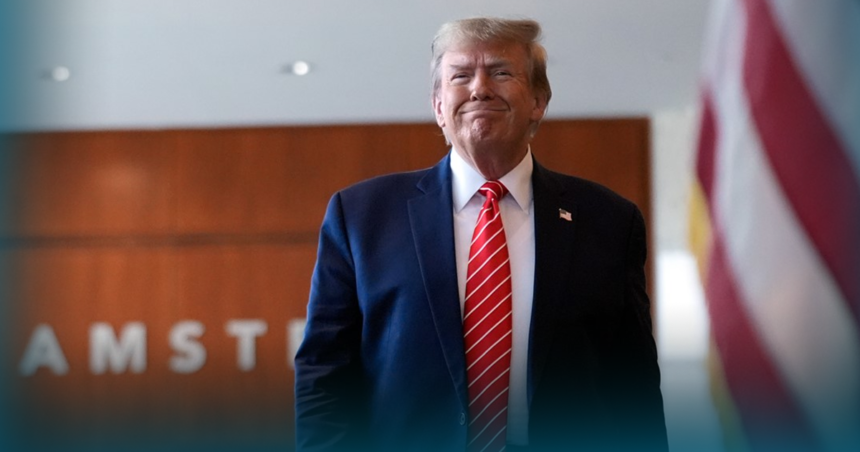Donald Trump’s chances of winning the presidency will be determined by the Supreme Court’s decision to hear a contentious case regarding his eligibility to run for office in Colorado on Thursday. For Chief Justice John Roberts, there will be a legacy at stake, to some extent.
Roberts has established a reputation for attempting to steer the court away from the politics that plagues the rest of Washington since he took the bench in 2005. But the most significant test for Roberts’ patience and go-slow strategy may come from the former president and front-runner for the Republican candidacy continuing to appear before a Supreme Court that he helped to shape.
The chief justice, who turned 69 last month, has to lead a disorganized group of colleagues, some of whom have recently expressed open dissatisfaction with internal mistrust. A new issue involving a former president’s criminal immunity as well as one of the most heated election disputes in history will now enter the fight.
Arguments about whether Trump broke the “insurrection ban” of the 14th Amendment by staging a rally on January 6, 2021, prior to the attack on the US Capitol, will be heard by the court on Thursday. In the event that the Supreme Court finds that Trump violated the post-Civil War ban and participated in insurrection, his candidacy would be declared null and void.
Furthermore, Trump now seems destined to face the Supreme Court on a different issue shortly: his assertion that he should get complete immunity from special counsel Jack Smith’s criminal election meddling prosecution. On Tuesday, a federal appeals court rejected that claim, stating that if Trump wishes to postpone his trial any longer, he must petition the Supreme Court.
Roberts will get that request.

There is no greater contrast between the two guys, Roberts and Trump. Soft-spoken conservative and institutionalist, Roberts is often regarded as attempting to maintain Americans’ confidence in the Supreme Court. Trump gained power by campaigning against established institutions, and he has publicly criticized the justices for supporting opposition to him in past decisions, including Brett Kavanaugh, Neil Gorsuch, and Amy Coney Barrett, three of his own selections.
Any chief justice will typically consider a vote that is unanimous, or almost so, to be the greatest result. Regarding the election issue, a number of analysts predict that the Supreme Court will reach a narrow ruling that keeps Trump on the ballot and refrains from drawing broad judgments about his conduct.
Tom Ginsburg, an author of a 2018 book about the danger of democratic decay and professor at the University of Chicago Law School, stated that it would be better if the decision was made unanimously and didn’t appear to be partisan. Roberts faces the difficult task of choosing a jurisprudential path that will garner nine votes.
This can entail searching for legal “off ramps” that result in a limited settlement of the dispute. For example, the court can decide that presidents are exempt from the insurrection prohibition or that enforcement of the legislation needs a congressional act.
Chief Justice John Roberts’ Ability
Trump’s appeals are being filed at a time when public confidence in the Supreme Court has reached all-time lows, according to polls, with many people—especially on the left—viewing it as an extension of government. After the justices upheld Texas’s restrictive abortion law in 2021, reversed Roe v. Wade the following year, and became entangled in a string of ethical scandals, the court’s popularity fell.
Roberts’ ability to persuade people has frequently produced middle-ground opinions that combine the views of the court’s three liberal and six conservative justices. He managed to put together a 6-3 majority in June that rejected a view supported by Trump that state legislatures have nearly unrestricted ability to change voting procedures, but it left unclear how far the courts could go in interfering.
Those attempts have fallen short at other instances. The chief justice outlined a viewpoint that would have allowed more stringent abortion legislation while preserving the important 1973 precedent should the Supreme Court reversed Roe v. Wade in 2022. Not a single colleague accompanied him.
The chief justice who oversaw some of the most important rulings in Supreme Court history is closely associated with those opinions. Chief Justice Earl Warren comes to mind frequently when court spectators recall the school desegregation decisions of the 1950s, according to Steve Vladeck, a professor at the University of Texas School of Law and CNN Supreme Court analyst. Chief Justice Warren Burger’s decision is frequently linked to the Watergate recordings case of 1974.
The important cases were resolved by a unanimous vote.
According to Vladeck, it will be challenging to divorce the court’s decision in this case from the identity of its present presiding officer. And it becomes a question of how far Chief Justice Roberts can guide the court toward a decision that will build public confidence instead of further undermining it.
President George W. Bush nominated Roberts, who joined the Supreme Court almost five years after it ruled in Bush v. Gore, another extremely contentious election decision, in 2000. In that instance, Florida recounts were stopped by a 5-4 majority, so giving Bush the advantage over Vice President Al Gore at the time.
In Florida that year, Roberts, a private attorney at the time, was a member of Bush’s legal team. However, he also saw the consequences of a ruling that split the country and brought intense attention to the court. After her death in December, the late Justice Sandra Day O’Connor regretted that she and her colleagues had brought up the issue.


Leave a Reply